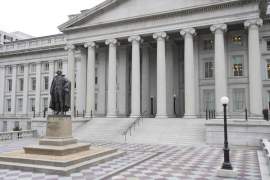
All You Need to Know About The Federal Transit Administration

What is the Federal Transit Administration (FTA)?
The Federal Transit Administration (FTA) is a Federal agency that operates within the United States of America that is responsible for the provision of both technical and financial assistance to the transportation systems categorized as being under the jurisdiction of the federal government; while the Federal Transit Administration largely oversees matters and affairs regarding interstate roadways, the FTA also provides resources with regard to systems and administrations of transit and transportation systems not considered to be ‘interstate’ in nature:
The Federal Transit Administration undertakes the management, oversight, and regulation with regard to public transportation systems, which include busses, trains, subways, trolleys, trams, and ferries; issues concerning private methods of transportation are under the jurisdiction of the additional department of the Department of Transportation
Federal Transit Administration Quick Facts
The following details outline the administration of the Federal Transit Administration (FTA):
The Federal Transit Administration (FTA) was founded on July 9th, 1964
The operations of the Federal Transit Administration (FTA) is under the jurisdiction of the United States Department of Transportation, which is the government agency responsible for the overarching management, regulation, and oversight of interstate transportation; this includes the supervision, legal maintenance, and legislative administration of all forms of roadways and travel
The Federal Transit Administration (FTA) is located in Washington, D.C.
The administrator of the Federal Transit Administration (FTA) is Peter Rogoff
Government Agency of the Executive Branch
Government agencies are defined as organizations, councils, and offices operating under the jurisdiction of the Federal Government of the United States of America; each federal agency retains specific administrative jurisdiction over specific facets latent within the operations of the United States Government.
The Federal Transit Administration (FTA) functions as a government agency under the Executive Branch of the United States government, which is comprised of 3 total branches; in addition to the Executive branch – which is responsible for the regulation and enforcement of operational legislation existing within the United States of America – there also exists the Legislative and Judicial Branches.
Federal Transit Administration Associated Terms
The following terms and terminology are oftentimes associated with the operations and undertakings of the Federal Transit Administration (FTA):
Urban Mass Transportation Act of 1964
This legislative act – passed in 1964 by former-President Lyndon Johnson – instated a financial disbursement plan with regard to the provision of funding to individual States in order to develop a budget with regard to the management and maintenance of State roadways and public transportation.
Federal Transit Administration Legality
Administrative Law is the legal field associated with events and circumstances in which the Federal Government of the United States engages its citizens, including the administration of government programs, the administration and operation of government agencies, and the establishment of a legal, regulatory federal standard. The Federal Transit Administration (FTA) is under the jurisdiction of the United States Department of Transportation; however, the Federal Transit Authority can be contacted through their mailing address, which is as follows:
Federal Transit Administration
East Building
1200 New Jersey Avenue, SE
Washington, D.C.
20590
(800) 877-8339
NEXT: Food and Drug Administration Explained





















